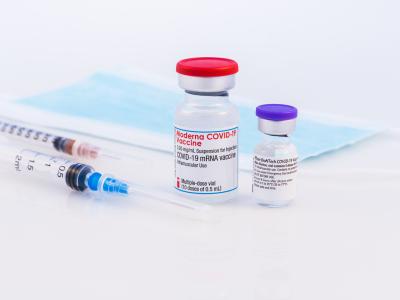Another MERS case reported in Saudi Arabia
The Saudi Arabian Ministry of Health (MOH) today confirmed another MERS case, the second in row after no cases had been reported for most of July.
A 36-year-old Saudi man from Buraydah is in critical condition after being diagnosed as having MERS-CoV (Middle East respiratory syndrome coronavirus). He is in critical condition and had direct contact with camels, a known risk factor for contracting the virus.
The new case raises Saudi Arabia's MERS-CoV total cases since 2012 to 1,681, which includes 684 deaths. Four people are still being treated for their illnesses.
Jul 27 MOH update
Public health groups warn of possible hit to prevention funds in latest Senate repeal bill
With the Senate expected to vote soon on a "skinny" repeal targeting some components of the Affordable Care Act, five public health groups today issued a statement warning about damage to the nation's health if the bill eliminates the Prevention and Public Health Fund (PPHF).
The groups include the American Public Health Association, Prevention Institute, Public Health Institute, Society of Public Health Education, and Trust for America's Health (TFAH).
In January, TFAH estimated that CDC would lose 12% of its annual operating budget if the ACA is repealed. It said states would lose about $3 billion over the next 5 years if the fund is erased, with reduced resources for handling disease outbreaks, opioid and heroin abuse, and chronic diseases such as obesity and diabetes.
The statement, posted on TFAH's Web site and signed from leaders of the five groups, said strong public health infrastructure makes the difference between health and illness, safety and injury, and life and death. "Slashing public health and prevention funding would increase preventable suffering and death, make the poorest and sickest communities fall even further behind, and leave our country far less prepared for and capable of responding to public health emergencies."
Jul 27 statement from public health groups on the PPHF
Jan 17 CIDRAP News scan "Analysis: CDC could lose $5 billion if ACA is repealed"
WHO: Progress seen against hepatitis, but more testing, treatment needed
The World Health Organization (WHO) today released new data on global progress toward hepatitis elimination, a review of efforts in 28 countries that revealed momentum is gaining. The group detailed its findings in an 83-page report released on the eve of the World Hepatitis Day.
According to the report, nearly all countries have formed national hepatitis elimination committees that have put together plans that include targets, and more than half have earmarked dedicated funding for hepatitis response. The report findings are geared toward increasing action toward meeting 2030 Sustainable Development Goals, which were endorsed by the World Health Assembly in 2016.
In a press release, the WHO said it is concerned that progress needed to speed up. Gottfried Hirnschall, MD, MPH, who directs the WHO's HIV and global hepatitis program, said "at best one in ten people who are living with hepatitis know they are infected and can access treatment. This is unacceptable." He added that countries need to boost access to testing and care.
WHO numbers from 2015 show 325 million people were infected with hepatitis, 257 with hepatitis B and 71 million with hepatitis C. That same year the virus led to 1.34 million deaths, similar to deaths from tuberculosis.
In a new treatment development, the WHO this week added a new generic treatment to its list of prequalified hepatitis C medicines—sofosbuvir, which as a generic costs between $260 and $280 a year, a fraction of the drug's original cost.
As part of its hepatitis efforts today, the WHO launched new communication and educational tools to improve injection safety and infection prevention, given that contaminated equipment in health settings is responsible for large numbers of hepatitis B and C infections.
Jul 27 WHO press release
Jul 27 WHO report
Global flu vaccine coverage has plateaued, despite recommendations
Despite recommendations by every major international health organization, influenza vaccination coverage has plateaued in recent years, according to a study yesterday in Vaccine.
The study looked at vaccine coverage over 12 years 2004 through 2015. Despite the World Health Assembly making the recommendation that member countries achieve 75% vaccine coverage in 2003 and despite the 2009 H1N1 flu pandemic, flu vaccine uptake has stalled in most countries, and has gone down in Europe.
The survey found that, of the 89 countries that recommended influenza vaccination in 2016, only 23 countries (26%) achieved the "hurdle" rate, defined as the number of doses required to reach about 15.9% of the population. In 2008, the hurdle rate was established as 159 doses per 1,000 population.
"The lack of progress has a sizeable potential economic cost. The annual direct medical costs alone are estimated at between $14 billion and $24 billion in the US, and between about €6 billion and €28 billion in the EU, based on direct costs from France, Germany, and the USA," the authors concluded. They added that no World Health Organization member countries are prepared for an influenza pandemic.
Jul 26 Vaccine study









